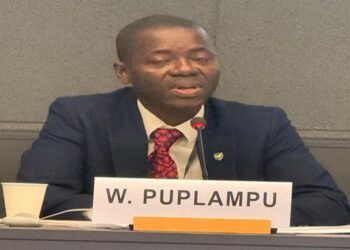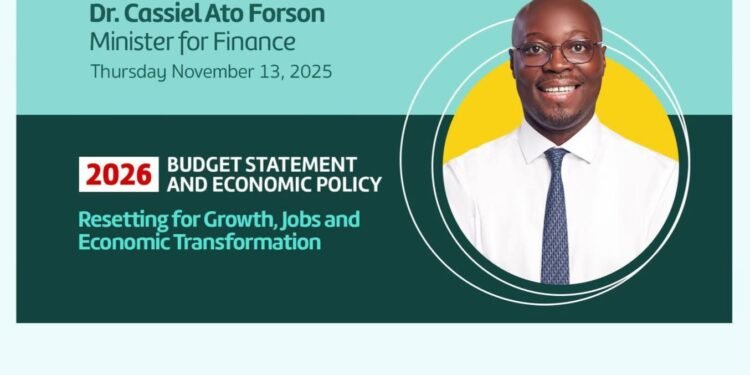The Government of Ghana has pledged to intensify reforms in the gold sector as the country braces for a major international evaluation of its anti-money laundering framework.
Officials say the reforms are essential to avert the risk of grey-listing by the Financial Action Task Force (FATF), a development that could harm investor confidence and restrict Ghana’s access to global financial markets.
At a high-level stakeholder meeting, Deputy Minister for Finance, Thomas Nyarko Ampem, speaking on behalf of Finance Minister Cassiel Ato Forson, underscored the urgency of addressing vulnerabilities in the gold trade.
He noted that the country is preparing for its second Anti-Money Laundering/Combating the Financing of Terrorism (AML/CFT) mutual evaluation by the Intergovernmental Action Group against Money Laundering in West Africa (GIABA), scheduled for 2026.
“The gold sector is critical to this process. Our collective responsibility is to ensure that [the] dialogue translates into tangible progress.
“Delivering on this agenda will protect domestic revenue, preserve livelihoods, and strengthen Ghana’s international reputation as a responsible gold hub.”
Hon. Thomas Nyarko Ampem, Deputy Minister for Finance
Gold is Ghana’s most important export, contributing 64% of total exports in the first half of 2025 and about 7% of GDP.

However, the sector is increasingly under scrutiny due to illegal mining, large-scale smuggling, and weak enforcement of regulations.
A report by SwissAid revealed that between 2019 and 2023, more than 229 tonnes of gold worth over $11.4 billion were smuggled out of Ghana.
In 2022 alone, 60 tonnes of gold were smuggled, making Ghana the second-largest source of illicit gold flows in Africa, after Mali. Analysts warn that such losses undermine domestic revenue and weaken the financial system’s integrity.
The Deputy Minister urged regulators, financial institutions, and law enforcement agencies to coordinate more effectively in combating money laundering and terrorist financing linked to the gold trade. “This is not just about compliance with international standards,” he stressed.
“It is about safeguarding our economic future.
“If we fail to act decisively, we risk grey-listing, which would severely damage our economy by making it harder for Ghanaian businesses to access international finance.”
Hon. Thomas Nyarko Ampem, Deputy Minister for Finance
Hon. Ampem commended the Financial Intelligence Centre (FIC) for spearheading Ghana’s National Risk Assessment, and also acknowledged the role of the UK-Ghana Gold Programme and the Economic and Organised Crime Office (EOCO) in building financial investigative capacity.
UK Backs Ghana’s Drive for Transparency in Gold Trade

The meeting also heard from Mr. Keith McMahon, the UK’s Deputy High Commissioner to Ghana, who pledged Britain’s continued support to Ghana’s reform agenda. “The United Kingdom stands firmly with Ghana in its efforts to strengthen transparency and governance in the gold sector,” McMahon said.
“This is essential not only for Ghana’s economy, but also for global financial integrity.
“The gold trade connects Ghana to the world, and therefore global partners must have confidence in its transparency.”
Mr. Keith McMahon, UK’s Deputy High Commissioner to Ghana
The UK-Ghana Gold Programme has already provided technical assistance in areas such as responsible sourcing, due diligence systems, and capacity building for regulators.
Beyond international obligations, the government stressed that reforms are necessary to protect livelihoods in mining communities, where illegal mining, popularly known as galamsey has led to environmental degradation, loss of arable land, and widespread poverty.

Officials argue that stronger oversight of the gold trade will curb smuggling, channel revenue back into government coffers, and create opportunities for local communities through legitimate mining operations.
The upcoming GIABA mutual evaluation represents a key test for Ghana’s financial system. If successful, Ghana will avoid the reputational risks of grey-listing, which could otherwise trigger tougher scrutiny of cross-border transactions and reduce the attractiveness of Ghana as a destination for foreign investment.
The reforms are expected to include stricter licensing processes, digital traceability systems, and tighter collaboration between security agencies and financial regulators.
While challenges remain, stakeholders expressed cautious optimism that the government’s new resolve, coupled with international support, will place Ghana on a stronger footing ahead of the evaluation.
READ ALSO: Ghana Set to Smash All 2025 Economic Targets – IC Research Hails Strong H1 Performance























